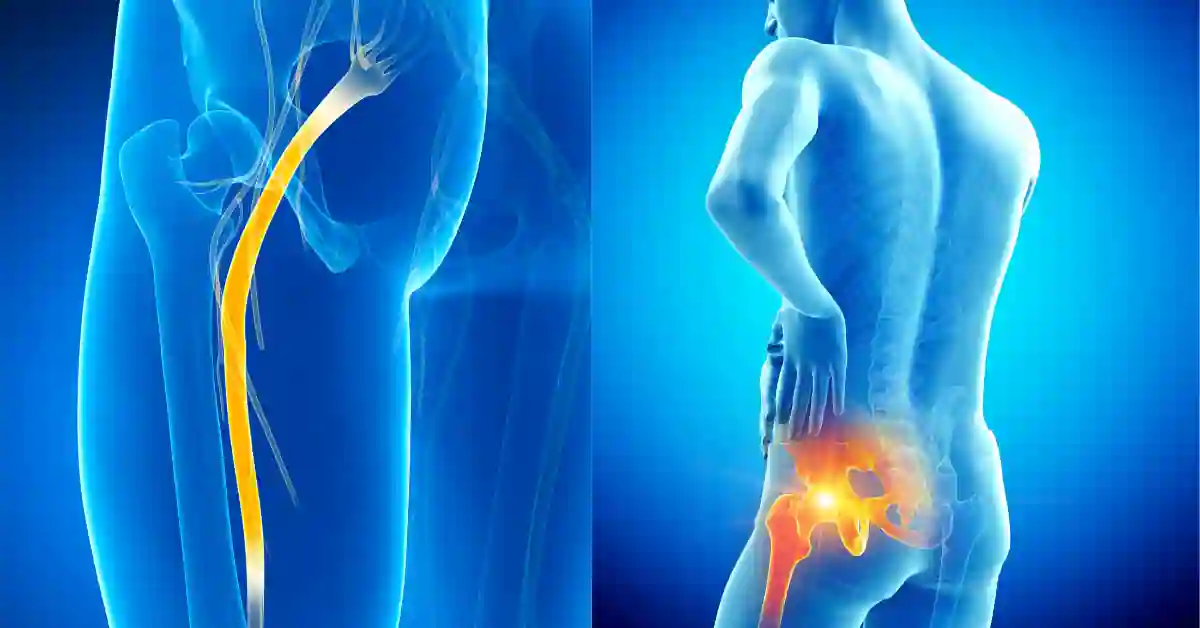Picture this: you wake up, stretch, and suddenly there’s a sharp pain shooting through your hip. Or maybe it’s a dull ache that gets worse with every step. If this sounds familiar, you might be dealing with a pinched nerve in your hip. It’s a common condition, but the good news is there are plenty of ways to ease the pain and get back to living your life.
Let’s break it down—what causes it, how to spot it, and, most importantly, how to fix it.
Table of Contents
ToggleWhat is a Pinched Nerve?
A pinched nerve happens when too much pressure is placed on a nerve by surrounding tissues, like bones, cartilage, or muscles. Think of it as a water hose pinched under a rock. The flow is disrupted, and in your case, that “flow” is the nerve signal.
Symptoms of a Pinched Nerve in the Hip
If you’re wondering whether that nagging hip pain is nerve-related, here are the telltale signs:
- Tingling or Burning Sensation: Feels like your leg is waking up from a nap—except it doesn’t stop.
- Muscle Weakness: Struggling to climb stairs or even stand up? That’s a red flag.
- Numbness or “Pins and Needles”: A classic sign that your nerve is being squished.
Hip Pain vs. Nerve Pain
While muscle pain tends to stay local, nerve pain often radiates, traveling down your leg or even into your foot.
Common Causes of a Pinched Nerve in the Hip
Several culprits can cause a pinched nerve, but here are the usual suspects:
1. Sciatica
This is one of the most common causes. When the sciatic nerve (the body’s longest nerve) gets compressed, it can cause hip and leg pain.
2. Lifestyle Triggers
- Sitting for hours at a desk
- Lifting heavy objects incorrectly
- Sleeping in awkward positions
3. Injuries or Overuse
Falls, sports injuries, or repetitive motions can strain your hip area, leading to a pinched nerve.
Diagnosing the Problem
If home remedies aren’t helping, it’s time to consult a doctor. Diagnosing a pinched nerve typically involves:
- Physical Exam: Your doctor will check your strength, range of motion, and pain triggers.
- Imaging Tests: An MRI or CT scan can confirm whether a nerve is compressed.
Effective Treatments for Hip Nerve Pain
When it comes to relief, there’s a wide range of options—from simple at-home tricks to professional medical treatments.
At-Home Remedies
- Stretching and Mobility Exercises
Gentle stretches, like the knee-to-chest move, can help reduce pressure on the nerve. - Best Sleeping Positions for Hip Nerve Pain
Try lying on your side with a pillow between your knees. It aligns your hips and reduces nerve strain. - Heat and Ice Therapy
Alternate between heating pads to relax muscles and ice packs to reduce swelling.
Non-Surgical Medical Treatments
- Physical Therapy
A physical therapist can design a plan to strengthen muscles around the hip, reducing pressure on the nerve. - Injections for Pain Relief
Corticosteroid injections can offer relief by reducing inflammation around the nerve.
Preventing Pinched Nerves
The best way to deal with a pinched nerve? Avoid it altogether. Here’s how:
Daily Movement
Take regular breaks to stretch if you sit for long periods. Even a 5-minute walk every hour can make a difference.
Ergonomic Adjustments
Use a chair that supports your lower back and adjust your desk setup to encourage good posture.
Addressing Content Gaps: Myths vs. Facts
Myth: Rest is the best cure for a pinched nerve.
Fact: While rest is helpful initially, too much can weaken surrounding muscles, worsening the problem.
Myth: Sciatica is the only cause of hip nerve pain.
Fact: Sciatica is common, but other conditions, like piriformis syndrome, can also pinch nerves.
Stories from Those Who’ve Been There
Meet Jane, a marathon runner who suddenly found herself limping after long runs. At first, she thought it was muscle soreness, but the sharp pain down her leg told a different story—it was a pinched nerve. After physical therapy, regular stretching, and better posture, she’s back to running pain-free.
Conclusion
A pinched nerve in your hip can feel like a roadblock, but it doesn’t have to derail your life. By recognizing the symptoms, seeking the right treatment, and making small changes to your routine, you can get back to doing what you love—pain-free. Don’t let hip pain hold you back. Take charge today!
FAQs
1. What’s the quickest way to relieve a pinched nerve in the hip?
Stretching, combined with heat or ice therapy, can provide fast relief.
2. How do I know if my hip pain is nerve-related?
If the pain radiates down your leg or feels electric, it’s likely nerve-related.
3. Are there exercises to avoid with a pinched nerve?
Yes, avoid heavy lifting, high-impact sports, or anything that aggravates the pain.
4. Can a pinched nerve heal without treatment?
Sometimes, yes, but professional advice ensures faster and more effective recovery.
5. When should I consider surgery for a pinched nerve in the hip?
Surgery is only necessary if symptoms persist despite months of non-surgical treatments.






